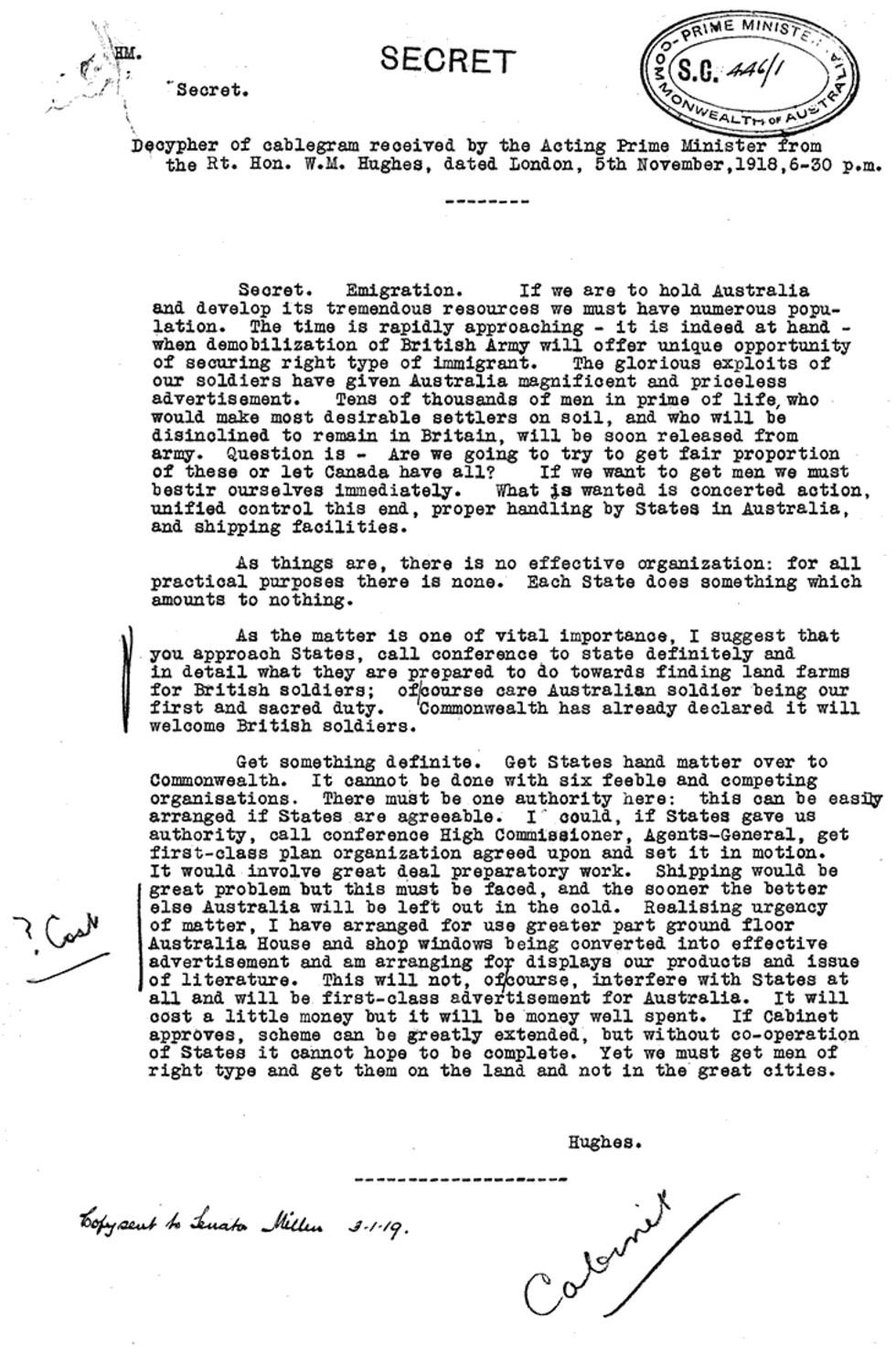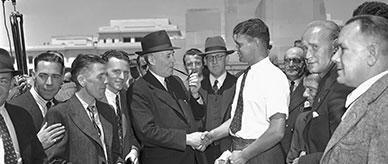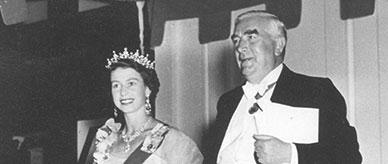


Transcript
[Stamped in large black letters:] SECRET
[Stamped in black ink: 'PRIME MINISTER – COMMONWEALTH OF AUSTRALIA'. In centre of stamp: 'S.G. 446/1'.]
HM.
Secret.
Decypher of cablegram received by the Acting Prime Minister from the Rt. Hon. W.M. Hughes, dated London, 5th November, 1918, 6-30 p.m.
[Dividing line.]
Secret. Emigration. If we are to hold Australia and develop its tremendous resources we must have numerous population. The time is rapidly approaching – it is indeed at hand – when demobilization of British Army will offer unique opportunity of securing right type of immigrant. The glorious exploits of our soldiers have given Australia magnificent and priceless advertisement. Tens of thousands of men in prime of life, who would make most desirable settlers on soil, and who will be disinclined to remain in Britain, will be soon released army. Question is – Are we going to try to get fair proportion of these or let Canada have all? If we want to get men we must bestir ourselves immediately. What is wanted is concerted action unified control this end, proper handling by States in Australia, and shipping facilities.
As things are, there is not effective organization: for all practical purposes there is none. Each State does something which amounts to nothing
[Paragraph emphasised by vertical line in margin.] As the matter is one of vital importance, I suggest that you approach States, call conference to state definitely and in detail what they are prepared to do towards finding land farms for British soldiers; of course care Australian soldier [sic] being our first and sacred duty. Commonwealth has already declared it will welcome British soldiers. [End emphasis line.]
Get something definite. Get States hand [sic] matter over to Commonwealth. It cannot be done with six feeble and competing organisations. There must be one authority here: this can be easily arranged if States are agreeable. I could, if States gave us authority, call conference [sic] High Commissioner, Agents-General, get first-class plan organization agreed upon and set it in motion. It would involve great deal [sic] preparatory work. [Emphasis line along left margin starts here, with handwritten note that reads: 'Cost?'] Shipping would be great problem [sic] but this must be faced, and the sooner the better else Australia will be left out in the cold. Realising urgency of matter [sic], I have arranged for use greater part ground floor Australia House [sic] and shop windows being converted into effective advertisement and am arranging for displays our products [sic] and issue of literature. [End of emphasis line.] This will not, of course, interfere with States at all and will be first class advertisement for Australia. It will cost a little money but it will be money well spent. If Cabinet approves, scheme can be greatly extended, but without co-operation of States it cannot hope to be complete. Yet we must get men of right type [sic] and get them on the land and not in the great cities.
Hughes.
[Dividing line.]
[Handwritten note, reads: 'Copy sent to Senator Miller 3.1.19.']
[Handwritten note, underlined, reads: 'Colonist'.]
About this record
This is a cablegram to the Acting Prime Minister of Australia, William Alexander Watt, proposing the resettlement of some British soldiers in Australia, upon the demobilisation of the British Army. The Acting Prime Minister later reported that the matter was not brought to finality due to state governments' fear of world influenza epidemic.
Related themes
Need help with your research?
Learn how to interpret primary sources, use our collection and more.


